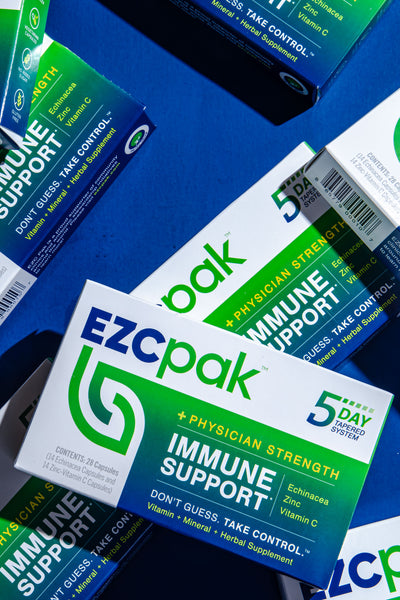This flu season -- and every winter before it -- old myths about the cold and flu circulate. In this article, we’ll discuss and debunk four old wives’ tales that aren’t doing you and your family any favors.
Myth 1: The Flu Shot Infects You With the Flu
It’s true: many flu vaccines use low doses of “inactivated” flu viruses to immunize the public. But what’s categorically false is the oft-repeated rumor that the vaccine itself can give you the flu. Some flu shot recipients feel a little achy after a flu shot. That’s completely normal. But if you’re really not feeling well after a flu shot, you’ve probably caught a cold.
There’s no reason not to get a flu shot, even in years when it’s less effective than researches had hoped. The CDC states that all Americans over the age of 6 months should get a flu shot. The flu vaccine is safe for pregnant women. There are some exceptions for those with life-threatening allergies to ingredients of the vaccine or with certain illnesses.
If you haven’t gotten your flu shot yet, it’s not too late.
Related: Why Isn’t the Flu Shot Working This Year?
Myth 2: When You’re Sick, Dairy Makes You Sicker
Dairy might make your phlegm stickier and thicker, but it won’t actually make you produce more phlegm or make you sicker. It’s up to you to decide how ice cream, milk, and yogurt make you feel when you’re under the weather. You might feel better sticking to warm, comforting liquids and toast -- but you don’t have to.
If you or someone in your family is experiencing an adverse reaction to dairy, then talk to your doctor about a possible dairy allergy.
Myth 3: If You Don’t Have A Fever, You’re Not Contagious
This famous -- and inaccurate -- rule of thumb has been used to determine whether a child should attend school or an adult should call out sick from work. Unfortunately, gauging whether you’re contagious is not so black and white.
If you’ve come down with a cold, you may not have a fever at all. You will still be contagious. As soon as you are symptomatic, you are at your most contagious. This stage typically lasts a few days. Once you feel better, you may still have a cough, so be sure to use good hand-washing technique and keep your distance until you are back at 100%.
If you have a flu, you typically will be contagious from the day before you become symptomatic up until you have been sick for about a week. Kids are at risk to stay contagious for even longer -- until they are completely well. While a fever is a better indicator of contagiousness with flu than cold, it is not the only one.
A better rule of thumb: If you don’t feel well, then stay away from people.
Related: How to Avoid the Flu When Everyone Around You is Sick
Myth 4: After One Flu, You’re Immune for the Year
We wish it was that simple -- but it’s not. There are multiple flu viruses circulating each year, and just because you’ve succumbed to one doesn’t mean you won’t succumb to another. You’ll also remain susceptible to cold viruses or viruses that cause pneumonia.
Keep practicing good hand-washing techniques and do everything you can to boost your immunity year-round.






